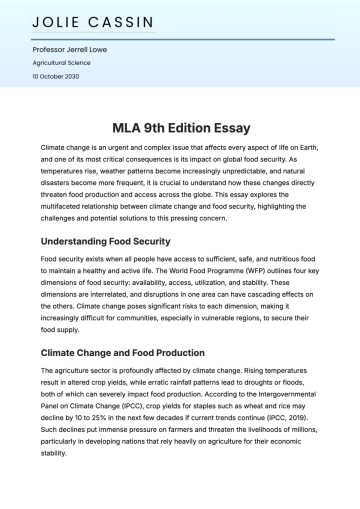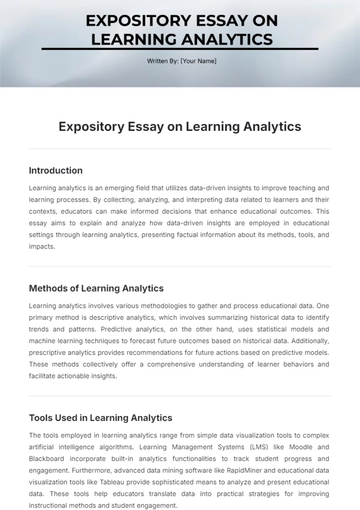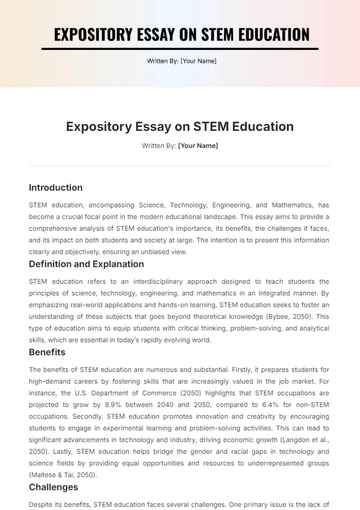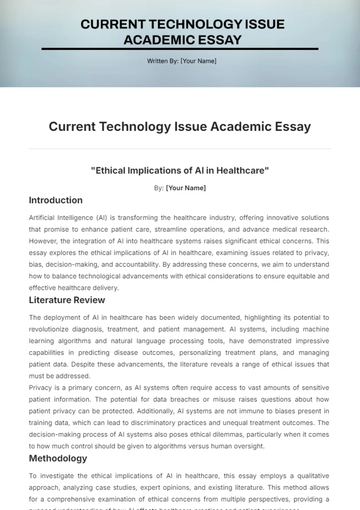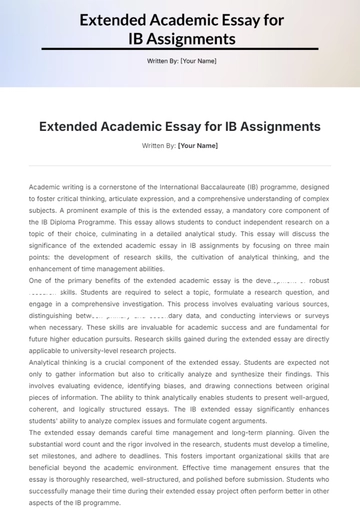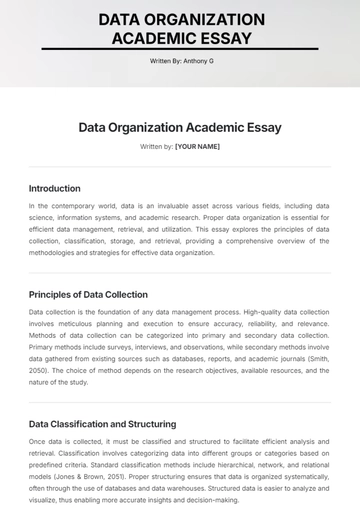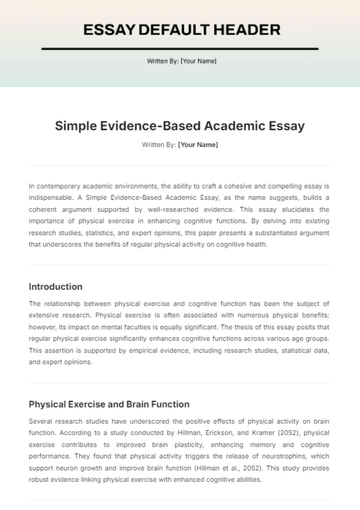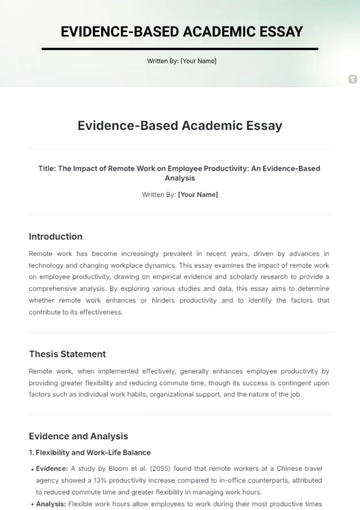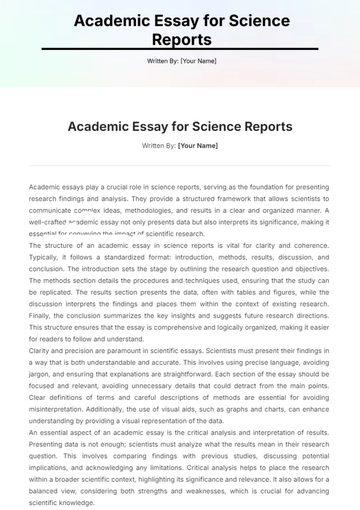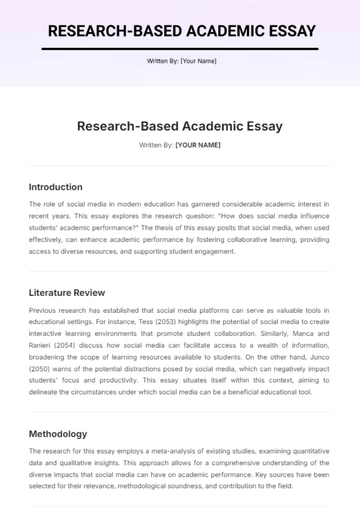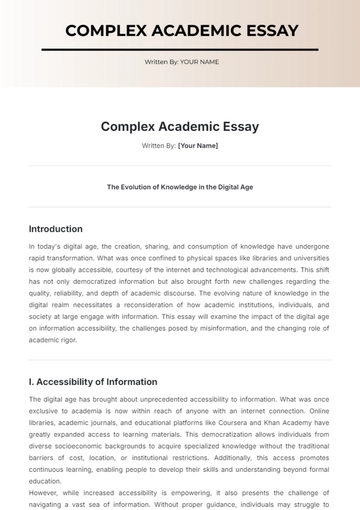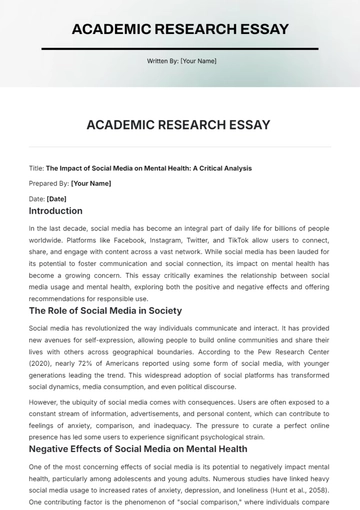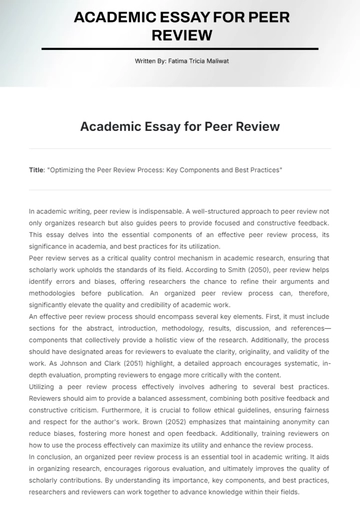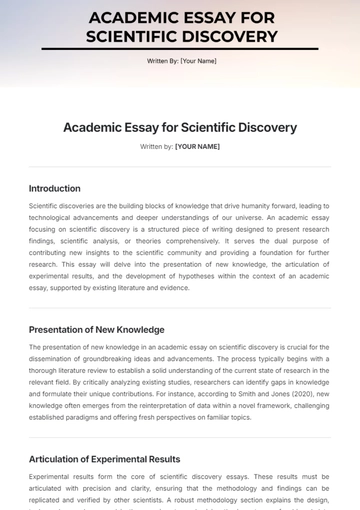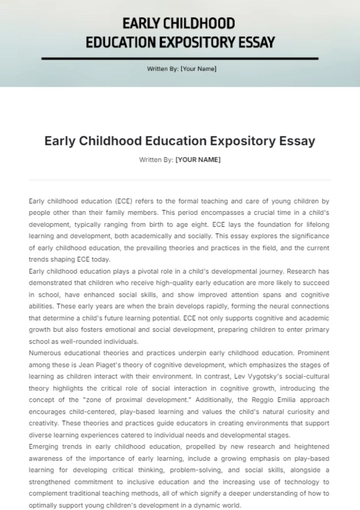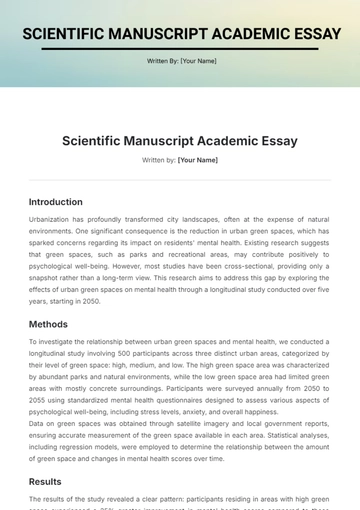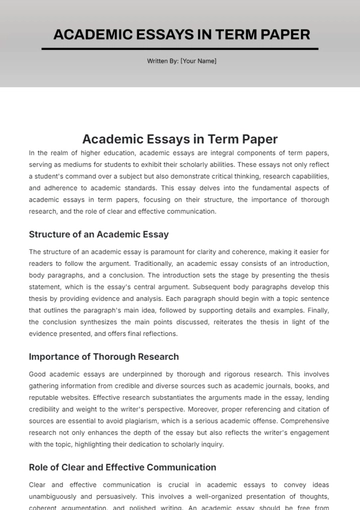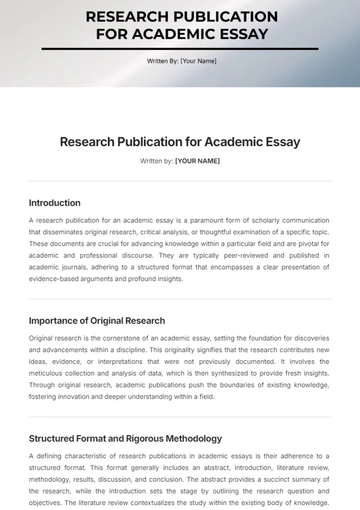Free Evidence-Based Academic Essay
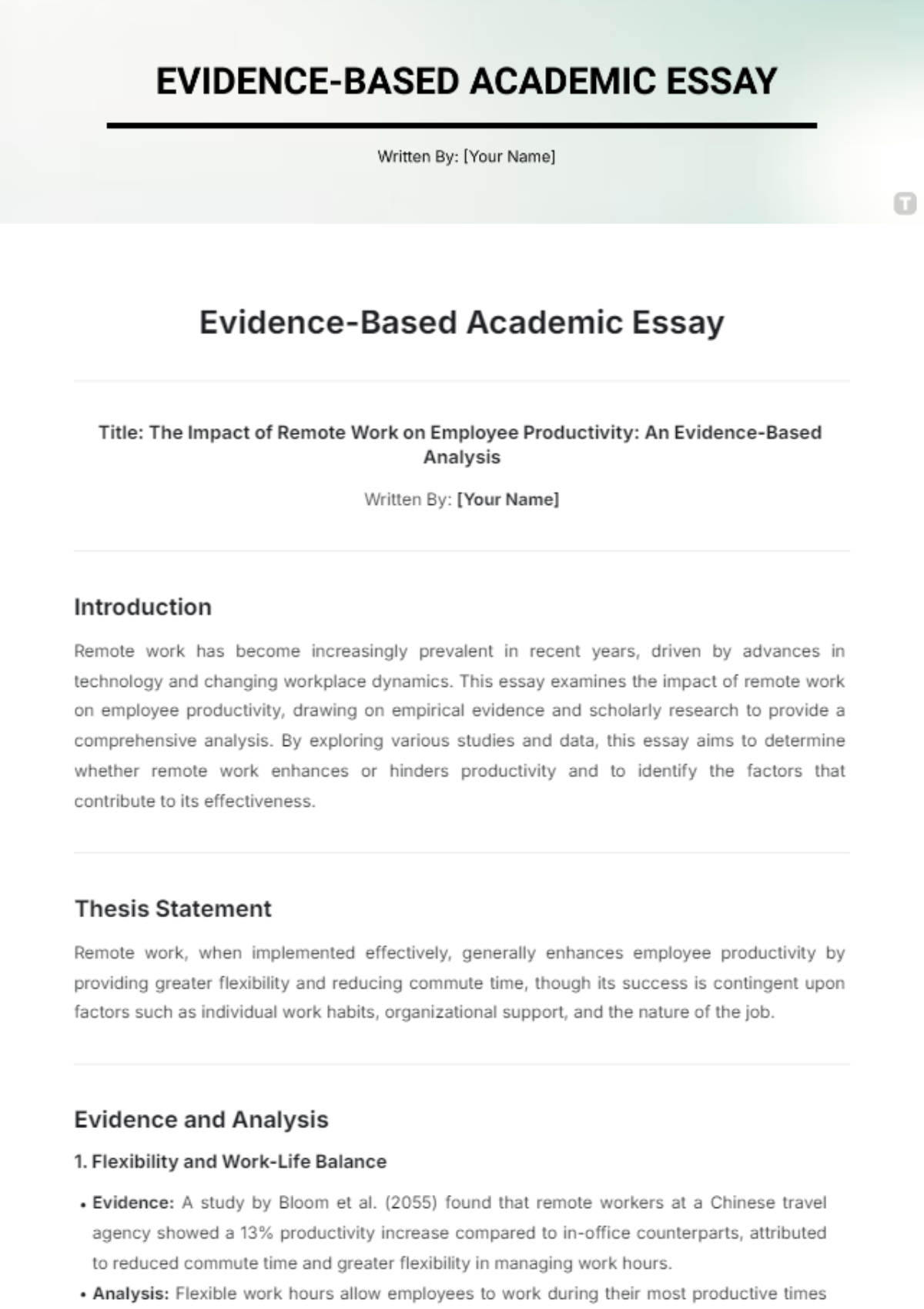
Title: The Impact of Remote Work on Employee Productivity: An Evidence-Based Analysis
Written By: [Your Name]
Introduction
Remote work has become increasingly prevalent in recent years, driven by advances in technology and changing workplace dynamics. This essay examines the impact of remote work on employee productivity, drawing on empirical evidence and scholarly research to provide a comprehensive analysis. By exploring various studies and data, this essay aims to determine whether remote work enhances or hinders productivity and to identify the factors that contribute to its effectiveness.
Thesis Statement
Remote work, when implemented effectively, generally enhances employee productivity by providing greater flexibility and reducing commute time, though its success is contingent upon factors such as individual work habits, organizational support, and the nature of the job.
Evidence and Analysis
1. Flexibility and Work-Life Balance
Evidence: A study by Bloom et al. (2055) found that remote workers at a Chinese travel agency showed a 13% productivity increase compared to in-office counterparts, attributed to reduced commute time and greater flexibility in managing work hours.
Analysis: Flexible work hours allow employees to work during their most productive times and improve work-life balance, benefiting those with caregiving responsibilities or non-traditional productivity patterns.
2. Reduced Commute Time
Evidence: The U.S. Census Bureau (2051) reports that the average American worker spends about 26 minutes commuting each way, which remote work eliminates, potentially saving over an hour daily.
Analysis: Removing commute time reduces stress and fatigue, enhancing productivity. The saved time can be used for work or personal activities, boosting job satisfaction and performance.
3. Individual Work Habits
Evidence: Buffer (2053) found that 20% of remote workers struggle with productivity due to home distractions, though those with strong self-discipline and time management skills generally report positive outcomes.
Analysis: The effectiveness of remote work depends on individual habits. Self-motivated employees with good time management thrive, while those lacking discipline may face challenges.
4. Organizational Support
Evidence: Gallup (2054) reports that organizations providing remote workers with necessary tools and clear communication channels see higher productivity levels.
Analysis: Effective remote work requires organizational support. Providing the right tools, technologies, and communication channels helps maintain productivity and manage remote teams.
5. Nature of the Job
Evidence: Harvard Business Review (2056) indicates that remote work is more effective for jobs with individual tasks and less suited for roles that depend on team collaboration and face-to-face interactions.
Analysis: Remote work is best for jobs involving solitary tasks. Roles requiring extensive teamwork and spontaneous interactions may face difficulties in a remote setting.
Conclusion
The evidence suggests that remote work when managed effectively, can enhance employee productivity by providing greater flexibility, reducing commute time, and offering opportunities for improved work-life balance. However, its success is influenced by individual work habits, organizational support, and the nature of the job. Organizations looking to implement remote work policies should consider these factors to maximize productivity and ensure that employees have the necessary resources and support to thrive in a remote environment.
References
Bloom, N., Liang, J., Roberts, J., & Ying, Z. J. (2055). Does working from home work? Evidence from a Chinese experiment. Quarterly Journal of Economics, 130(1), 165-218.
Buffer. (2053). State of Remote Work Report. Buffer.
Gallup. (2054). State of the American Workplace Report. Gallup.
Harvard Business Review. (2056). The Future of Remote Work. Harvard Business Review.
U.S. Census Bureau. (2051). American Community Survey. U.S. Census Bureau.
- 100% Customizable, free editor
- Access 1 Million+ Templates, photo’s & graphics
- Download or share as a template
- Click and replace photos, graphics, text, backgrounds
- Resize, crop, AI write & more
- Access advanced editor
Create a well-supported academic paper with Template.net's Evidence-Based Academic Essay Template. This editable and customizable template is designed to present evidence and research findings. Editable in our Ai Editor Tool, the template makes it easy to organize and structure your essay based on credible sources, ensuring your paper meets academic standards for rigor and clarity.
